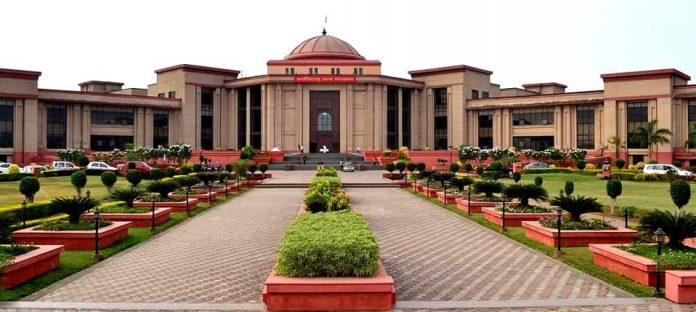The Chhattisgarh High Court recently on Monday, dismissed a Petition that challenged a notice dated 10.5.2022 issued by the Collector, Bemetara (CG) regarding no confidence motion.
The Petition has been filed by President Nagar Panchayat of Bemetara District.
The counsel for the petitioner submitted that the impugned notice is arbitrary, illegal and contrary to law.
The notice does not mention the names of the persons against whom, no confidence motion has been passed and the Collector has not made any enquiry before fixation of the date of no confidence motion, therefore, the impugned notice is unconstitutional.
The Counsel for the respondents strongly opposes the submissions and submitted that as per the provisions contained under Section 43-A(2) (ii) of the Chhattisgarh Municipalities Act, 1961, notice of such a meeting specifying the date, time and place shall be dispatched to the President and every Councillor ten clear days before the Meeting and the said provision has been duly complied with, therefore, there is no illegality in the impugned notice.
Countering the submissions, learned counsel for the petitioner argued that as per the said provisions under the Act, 1961, the condition of requisition signed by not less than one-sixth of the total number of elected Councillors constituting the Council for the time being, has not been complied with.
Having heard the submissions and also considering the statutory provisions, a Single Bench of Justice Deepak Kumar Tiwari observed that for the notice to be sent in respect of No Confidence Motion, the only requirement stipulated under the law is that the information about the date time and place is to be communicated as held by the M.P. High Court in the matter of Bal Krishan Patel Vs. Brijendra Patel and others (1985 MPLJ 332), wherein, it has been held thus : “It is the settled view of this Court that if there is substantial compliance of this provision, a motion cannot be defeated for technical reasons and it is undemocratic to keep a person on the post when he lost majority.
This Court in Bensilal v. Collector, West Nimar (supra) has held that on passing a no confidence motion against the Sarpanch, the post of Sarpanch is automatically vacated; this effect cannot be arrested even by the operation of the stay order passed by the High Court. Such must be effect when a no confidence motion is passed in substantial compliance to section 18 of the Act. So, this Court in Motilal Ranchandra v. Gram Panchayat, Jamburdiarvar {1983 MPLJSN 8} has held that when a no confidence resolution against Sarpanch carried by overwhelming majority, the case is not fit for interference under Article 226 of the Constitution even if there was irregularity in the service of the notice of the meeting.
This Court in Babulal Vs. State of M.P. (Supra) has held that the Collector or any other authority had no power to stay the effect of the no confidence motion passed under the Municipalities Act.
The motion of no confidence is not an executive order and the resolution takes effect from the moment it is passed. That was a case under section 331 of the M.P. Municipalities Act, 1961 but that provisions is not similar to section 83 or 86 or the present Act.
In that context this Court held that even the State had no power to stay the effect of the no confidence motion because under section 331 it had only the power to call for and examine the record of any proceeding under that Act in respect of a case and so it was held that this provision did not cover a no confidence motion the proceeding of which was not a case but now in the present enactment there is a power in the Collector or the Additional Collector to entertain a revision against a no confidence motion and even to pass an order of stay. Before passing an order, normally a no confidence motion cannot be defeated for technical reasons, even when there is sufficient compliance to section 18.”
For the foregoing, the Court is of the considered view that a motion cannot be defeated for technical reasons, if any. The Collector has sent a proper notice , therefore, the High Court does not find a good ground to interfere in the impugned notice while exercising powers under Article 226 of the Constitution of India.


